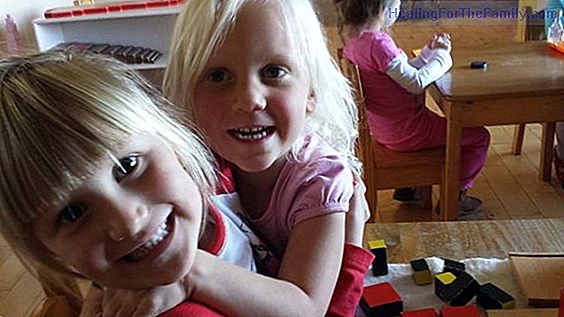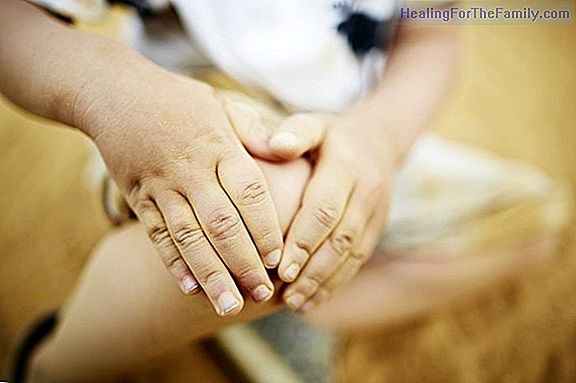The importance of emotional education to raise happy children
Emotions play a very important role in the physical and emotional development of the child, emotional education since childhood is a fundamental element for the child to grow up healthy and happy. The school and the family are the main educators of children. The father and the mother prepare the chi
Emotions play a very important role in the physical and emotional development of the child, emotional education since childhood is a fundamental element for the child to grow up healthy and happy. The school and the family are the main educators of children. The father and the mother prepare the child for life, helping him to develop the necessary skills so that he knows how to cope with ease in the different circumstances and situations that he faces day to day.
What is the emotional education of the child

Emotional learning begins in the family, where the child feels accepted and loved for who he is, he as a person is important and worthy of the love of their parents. The child has to feel that unconditional affection, feel a valuable person because his parents listen to him, play with him, dedicate time, worry about his things, putting him ahead of other occupations such as watching TV or waiting to answer messages e-mail or whatsapp
- Emotional education is teaching children to understand, recognize, express and regulate their own emotions and those of others in a proper way.
- It is a learning that will help you achieve your goals and relate in a satisfactory way with others.
- It is an attitude towards life, living with optimism and eagerness to overcome, tolerating frustration and learning from mistakes, trusting in oneself and in others.
We live in a society where everything goes very fast, we have to get to work on time, leave the children at school, pick them up to take them to many extracurricular activities, homework, bathrooms, dinners, we hardly have time for ourselves. Such a stressful life rhythm makes many everyday situations generate a lot of tension in the home, when children do not obey, they go at their pace, they fight.
There are times when it is very easy to lose your temper, parents can end up screaming, blaming and disrespecting their children. This behavior if it is very frequent can generate inadequate educational models in children, the consequences are low self-esteem, difficulty in the correct coping of the problem and in finding the solution to the conflict. Pautas 3 emotional education guidelines for children to grow up happy
- It is essential that the father and mother talk with their children,
manage stress properly and regulate their own emotional states to face these situations calmly. It is important that the child's self-esteem is safe, he is a very valuable person but we do not accept his behavior, we love him and we want to get the best version of himself. The child can understand that his behavior is inadequate if we explain it to him with affection and with words appropriate for his age, telling him what we expect from him. The child seeks the recognition of dad and mom and will do everything possible to please them if the parents help him. -
The role of parents is to respond to the emotional needs of children to ensure their balance . The family offers protection to the child, while the child grows progressively in autonomy according to their age, under the guidance and supervision of the parents so that they can develop as a person but without falling into overprotection. The child requires the attention of his parents not only to meet their vital needs but also their needs for affection, to feel heard, understood and loved. The child needs to perceive that his home is a place of care and safety in which he can express himself freely, in which he is taught and corrected without the constant fear of punishment. It is important to reinforce the feeling of belonging to a family that serves as support and that provides the security to strengthen and be able to function in the world with confidence.-
A key factor in finding harmony in family relationships is respect . Parents expect their children's attention, consideration, compliance with rules and good manners. However, the style in which they are spoken does not meet these standards, "you have me fed up", "do not say nonsense", "you are protesting all day". Many times they are shouted to tell them to talk lower, they are grabbed with anger to tell them to calm down, they are routine and automatic behaviors that are not even considered by adults, without stopping to think that a child also dislikes that they treat you or speak to you in an inappropriate way. Parents who treat their children in a respectful way have a double gain, on the one hand they will maintain a harmonious relationship with their children, earning their trust and, on the other hand, they will serve as ideal models for their son or daughter. A relationship of respect requires reciprocity, parents are responsible for leading this interaction.












